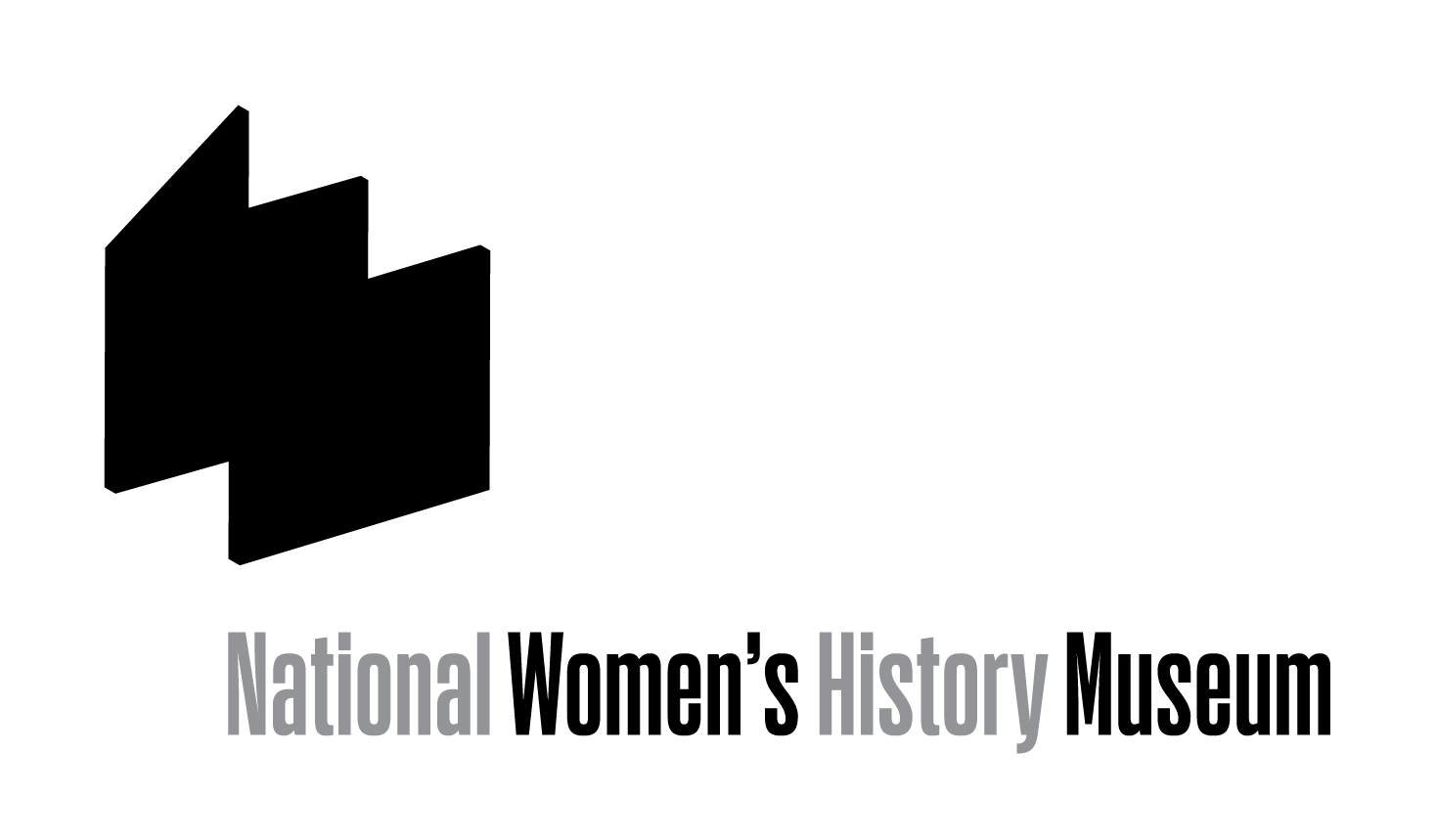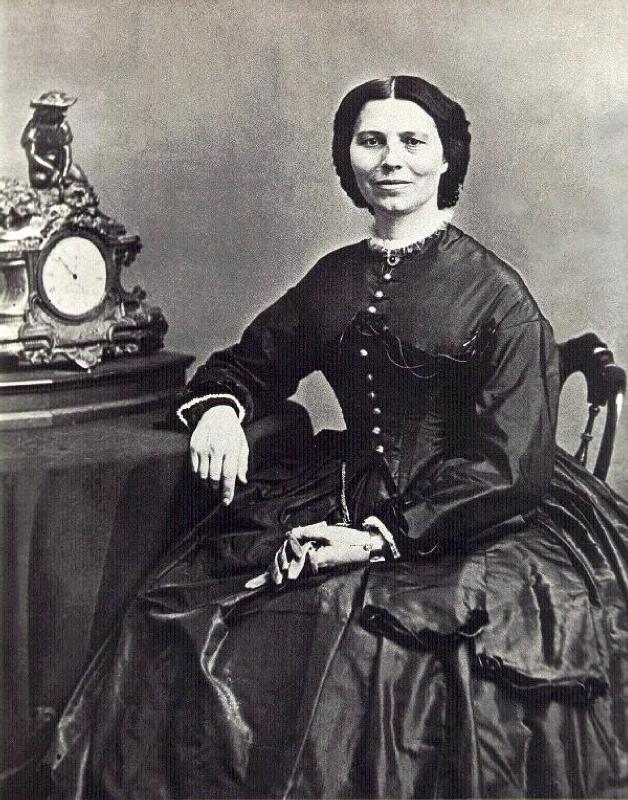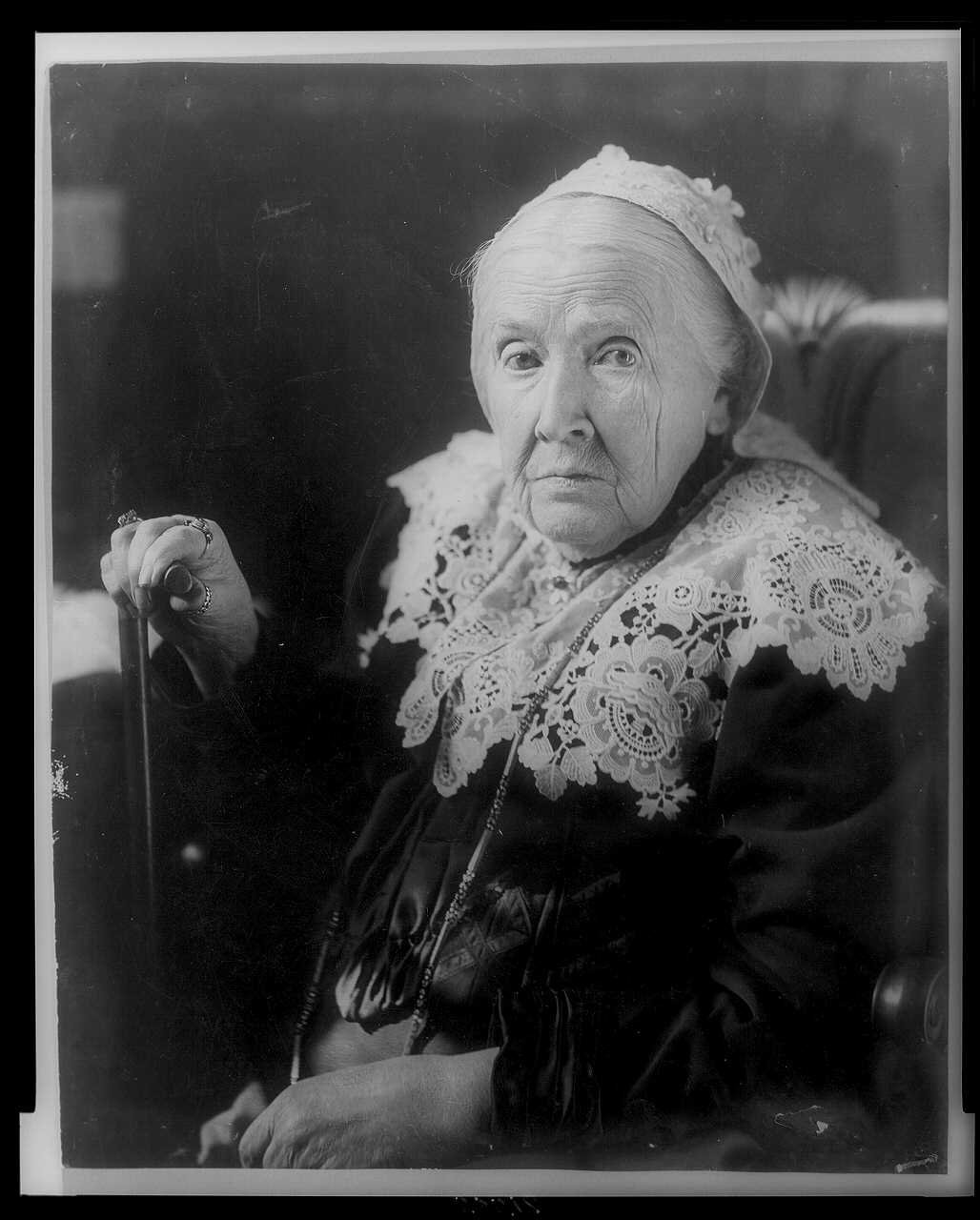I had reasoned this out in my mind; there was on of two things I had a right to, liberty or death; if I could not have one, I would have the other; for no man should take me alive.
Harriet Tubman
Buildings of the Great Central Fair, in aid of the U.S. Sanitary Commission, Logan Square, Philadelphia, June 1864, Library of congress.
Civil War Activism
During the Civil War, reformers focused on the war effort rather than organizing women’s rights meetings. Many activists supported the abolition of slavery, so they rallied to ensure that the war would end this inhumane practice.
Some women’s rights activists, like Clara Barton, served as nurses. In the North, Elizabeth Cady Stanton and Susan B. Anthony established the Women’s Loyal National League. The group called for the immediate end of slavery and full citizenship rights for newly freed blacks. Women’s rights activists also were part of the United States Sanitary Commission, a large national volunteer association that raised money and sent supplies to Union soldiers.
Black women played a crucial part in the war effort. Harriet Tubman had been helping slaves escape to freedom since 1851. Because of her network of friends and familiarity with the landscape, she also became a spy for the United States during the war. The Women’s Loyal National League raised money to support Tubman’s work. Sojourner Truth, the prominent reformer and lecturer, envisioned what life would be like for newly freed men and women and led efforts to settle freed people in Kansas.
Although the Civil War temporarily disrupted the women’s rights movement, women’s efforts and the organizations they created laid the foundations for a stronger movement after the war.
By Allison Lange, Ph.D.
Fall 2015
Essential Questions
- How did the Civil War affect the woman suffrage movement?





Library of Congress.
Women played an important role during the Civil War. Not only were they nurses, but a group of them created the United States Sanitary Commission in 1861. This commission of women volunteers organized the donation of supplies and money to the army. Members held fairs, such as the one this flyer is advertising. The group urged people in the area to either mail in or bring supplies to the fair. This advertisement for the Restaurant Department of the Great Central Fair indicates the event's regional reach with its appeal for contributions from Pennsylvania, New Jersey, and Delaware. It also encourages all donations no matter if they are big or small, “let them be ever so small, they will be thankfully received.”